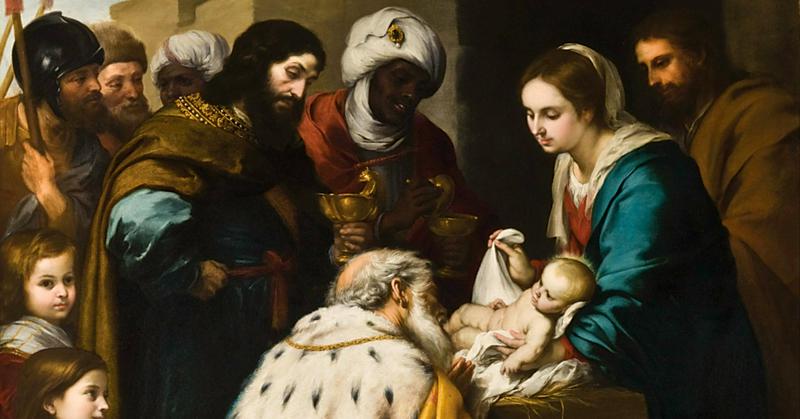Three Wise Men History: Were They Wise? Who Were They? Why Frankincense?
By | December 22, 2020

Everyone who's heard the story of Jesus in the manger knows that three wise men showed up at one point, guided by a bright star in the night sky, and presented the Christ child with gifts of gold, frankincense, and myrrh. But were there really three wise men? The Bible doesn't get specific about the Magi, who they are, or what these "wise men from the East" were doing wandering through the desert.
The Wise Men In The Bible
According to Matthew 2:1-12, the wise men followed a star to Bethlehem and started asking around about this king of the Jews they seemed confident had just been born. It caused quite a stir, especially with King Herod, who rounded up all the priests and intellectuals and demanded to know why so many people were coming to see this mystery child. They explained the prophecy, and Herod instructed the wise men to hit him up on their way back, but they were "warned in a dream" that he was sketch. After dropping off their gifts, they took a different route home and out of the Good Book forever.

Who Were The Three Wise Men?
Because there's so little information about the Magi in the Bible, people have tried to fill in as much information as they can about these three travelers. Their names are never given, but because they feature so heavily in the nativity story that is told over and over in Christian culture, they had to call them something. According to Western tradition, the three kings of Persia, India, and Babylonia are called Melchior, Caspar, and Balthazar, respectively. In Syria, the wise men are named Larvandad, Hormisdas, and Gushnasaph, while other Christian cultures named them Kagba, Badadakharida, and Badadilma.
It's not clear how the Magi, who were initially only referred to as magos (a caste of priests and, yes, wise men), became kings. In fact, they were probably astrologers to the stars (that is, the priests), simple servants of the court rather than rulers. Between the third and eighth centuries, however, new translations of the Bible imbued them with this royal designation, specifically the line "May all kings fall down before him." Thanks to this combination of mystique and suggestion of significance, the Magi have become saints and martyrs in some traditions. Several churches even claimed to house their remains, but it's pretty hard to identify the body of someone with an unknown, uh, identity.

What's With Those Gifts?
We don't even know that there were definitely three wise men. All we know for sure is there was more than one, but we assume there were three because they brought three gifts that, upon closer inspection, you'll find distinctly unsuitable for a baby. Biblical scholars have noticed this, too, and developed a number of theories about what was with the gold, frankincense, and myrrh.
The most basic theory is that the gifts are what they are: myrrh is an anointing oil, frankincense is a perfume, and gold is gold. (Everyone loves gold.) Others believe the gifts are metaphorical, e.g. gold represents "kingship," frankincense is godly, and myrrh symbolizes death because of its use in embalming. Another possibility is that gold represents virtue, frankincense symbolizes prayer, and myrrh is a stand-in for suffering. Still another possibility is that it's all a callback to Isaiah's prophecy that "They shall bring gold and frankincense and proclaim the praise of the Lord."

They Didn't Even Arrive On Christmas
If you go to see a nativity play today, you'll see everybody show up just after the birth of Jesus, but if you think about it, it's pretty unlikely that even those who had to travel from exotic lands managed to make it before Mary could even leave the manger. That's because they didn't: The Magi actually arrived 12 days after the birth of Christ. The nativity play truncates the timeline to keep the length to a minimum, because nobody wants to watch a 12-day play. Today, the day of the Magi's arrival is known as Epiphany or Three Kings Day, and depending on your brand of Christianity, you celebrate it anywhere between January 6 for Catholics and January 19 for Orthodox Christians.

